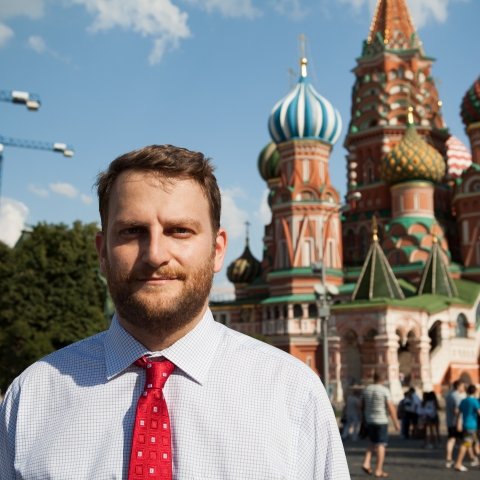Yuval Weber
Global Fellow
Professional Affiliation
Research Assistant Professor, Bush School of Government and Public Service, Texas A&M University
Expert Bio
Yuval Weber, PhD, is a Research Assistant Professor at Texas A&M’s Bush School of Government and Public Service in Washington, DC. Previously he was an Assistant Professor at the Faculty of World Economy and International Affairs at the National Research University - Higher School of Economics (Moscow, Russia) and a Center Associate at the Davis Center for Russian and Eurasian Studies at Harvard University. Dr. Weber served as a Visiting Assistant Professor in the Department on Government at Harvard University. Dr. Weber is working on a project on the sources of liberal and anti-liberal dissatisfaction for powers in the international system and the strategies they employ to stake their claims for revising the international order. The first manuscript under contract (Agenda/Columbia UP) evaluates the tension between demands of economic modernization and the security state in Russian political economy, and will be completed while at WWC. His work has appeared in Problems of Post-Communism, International Studies Review, Survival, Cold War Studies, Orbis, and the Washington Post.
Wilson Center Project
Designed to Fail: Patterns in Russian Economic Reforms, 1861-2018
Project Summary
When and why does Russia pursue pro-market economic reforms? This project argues that Russian leaders pursue economic reform efforts not for their own sakes, but as a security response to falling behind peer competitor states. When economic performance becomes a security risk, Russian leaders have sought to reduce this gap by empowering economic actors outside of government and thus attracting foreign technology, capital, and expertise. Yet this pattern is politically dangerous because reforms impose adjustment costs and challenge existing stakeholders. In turn, leaders often pull the plug to maintain centralized political control over the economy, leading to the familiar pattern of much ballyhooed but underwhelming reforms. The project shows foreign policy concerns driving economic reforms in Russia and demonstrates the tentative and repetitive nature of reform in authoritarian states when leaders have to balance the competing demands of seeking growth and maintaining external security without sharing political power.
Major Publications
- Publication One“Commitment Issues: The Syrian and Ukraine Crises as Bargaining Failures of the Post- Cold War International Order” -- Problems of Post-Communism
- Publication Two“What Can Russia Teach us About Change in International Politics?” -- International Studies Review
- Publication Three“An Illiberal World Order? The BRICS Challenge to The U.S.-Led Political Order” -- Orbis
Insight & Analysis by Yuval Weber
- Video
- Democracy
Yuval Weber Testifies Before the House Foreign Affairs Committee on Understanding Authoritarianism and Kleptocracy in Russia
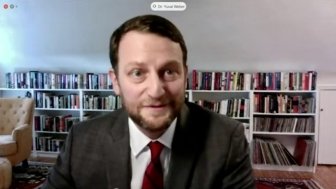
- Article
- Great Power Competition
U.S. Imposes Fresh Round of Sanctions on Russia

- Publication
- Democracy Promotion
Wilson Memo: "Alexei Navalny: A Threat to Putin?"
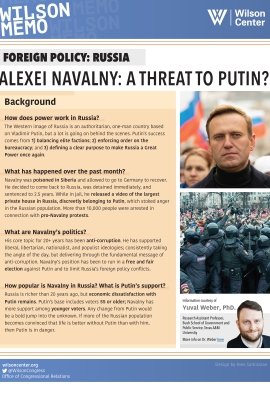
- Podcast
- Strategic Competition
Tried Plan C - What's Plan D? The Navalny Phenomenon Inside and Outside Russia
-
Listen on
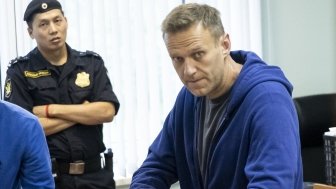
- Article
- Civil Society
Alexei Navalny's Arrest Sparks Nationwide Protests | An Expert Analysis
- By
- Anna Arutunyan,
- Sergey Parkhomenko,
- Nina Rozhanovskaya,
- and 2 more
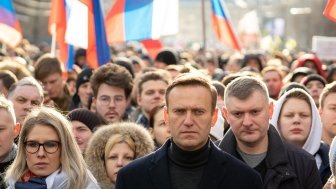
- Podcast
- Historical Memory
They Were Supposed to Party Like It Was 1999... AND 1945
-
Listen on

